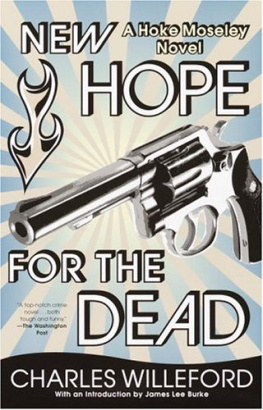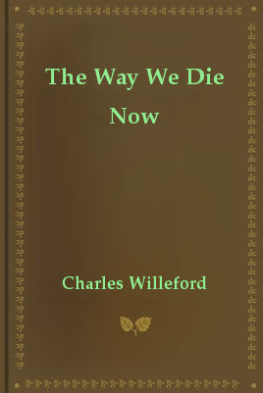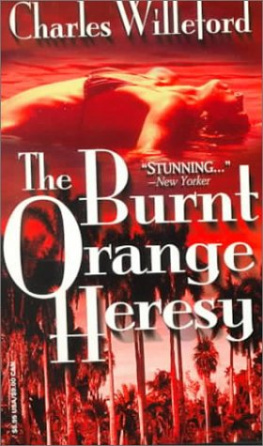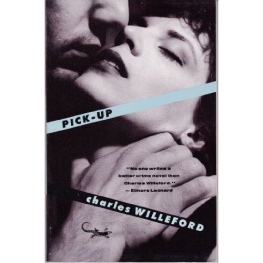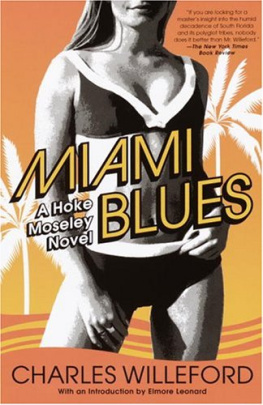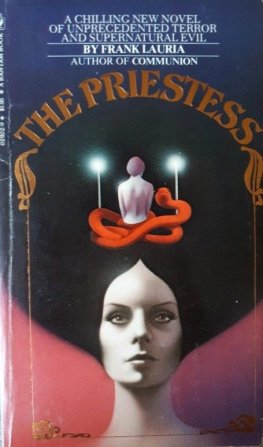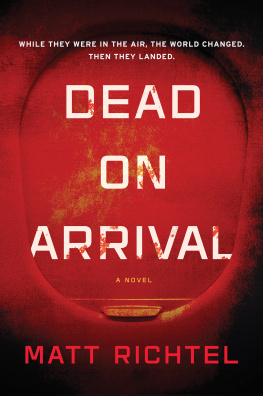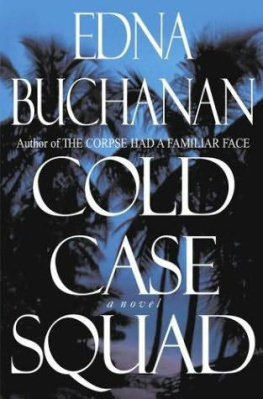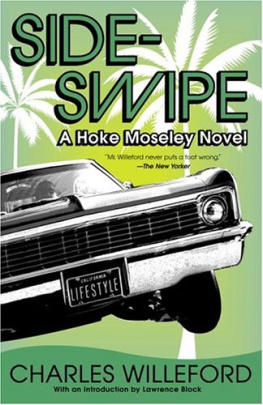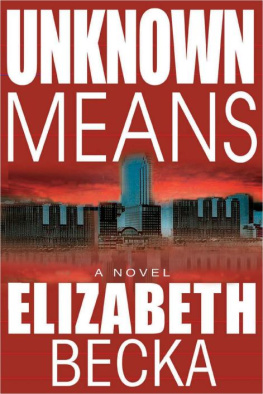NEW HOPE FOR THE DEAD
by Charles Willeford
Copyright 1985
To Betsy and the boys
"Man's unhappiness stems from his
inability to sit quietly
in his room."
--Pascal
"CRAP," Sergeant Hoke Moseley told his partner, "is the acronym for finding your way around Miami." He glanced at Ellita Sanchez as he shifted down to second gear, and waited for her to nod.
She should know that much already, having been a police dispatcher for seven years, so there was no need to explain that _C_ stood for courts, _R_ for roads, _A_ for avenues, and _P_ for places. It didn't always hold true that courts, roads, avenues, and places all ran north and south. Sometimes they looped in semicircies and wild arabesques, especially the roads.
Hoke's major problem with Ellita was making conversation. He never knew exactly what to tell her or what to take for granted, even though he was the sergeant and she was the new partner. She seemed to know almost everything he told her already, and she had only been in the Homicide Division for four months. Some of the things Hoke knew from experience and had tried to explain to her--like the fact that junkies sometimes rubbed Preparation H on their track marks to reduce the swelling--she knew already. CRAP was one of those oddities that very few cops knew about, and he really hadn't expected her to say, "I know."
Perhaps, he thought, her two-year A.S. degree in police science at Miami-Dade Community College was actually worth the time and money she had invested in it. At any rate, she was getting more sensitive to his moods. She just nodded now, instead of saying "I know," and this had begun to irritate him visibly. And something else was bothering Sanchez. Her pretty golden face was more somber lately, and she no longer smiled as broadly in the mornings as she had at first. Her quiescent moodiness had been going on for more than a week now. At first, Hoke had attributed it to her period--if that's what it was--but a week was a long time. How long did a period last? Well, whatever it was that was bothering her, it hadn't affected her work. Yet.
One thing Hoke knew for sure: He hadn't done anything to offend her. If anything, he had bent over backward to make her an _equal_ partner--subject to his directions, of course. He almost always explained why he was doing something. But Sanchez was, first of all, a woman, and she was also a Latin, so perhaps there were some sexual and cultural differences here and he would never really know what was on her mind.
Sometimes, though, when he wanted to make a humorous comment, the way he had with his old partner, Bill Henderson, and then took a look at her, with those huge tits looking voluptuous and maternal in the loose silk blouses she always wore, he held his tongue. Having a female partner in the car instead of Bill wasn't the same. Maybe he should let Sanchez drive the car once in a while. But that didn't seem right either. The man always drove, not the woman, although when he and Bill had been together, Bill had driven most of the time because he was a better driver than Hoke, and they both knew it. For all Hoke knew, Ellita Sanchez was a better driver than either Bill or himself.
Tomorrow, then, maybe he'd let her drive--see how it worked out...
"The next street," Sanchez said, pointing to the greenand-white sign, "is Poinciana Court."
"Yeah." Hoke laughed. "And it's running east and west."
They were looking for an address in Green Lakes, a Miami subdivision built during the housing boom of the mid-1950s when the developer was looking for young families with small children, for Korean war veterans with $500 saved for a down payment and jobs that paid them enough to afford a $68-a-month house payment. These had all been $10,000 houses then, with thirty-year fixed mortgages at 5 percent interest. That wasn't expensive, even then, for a three-bedroom, one-bathroom house. Today, however, these same houses in Green Lakes, now thirty years old, were selling for $86,000 and more, and at 14 percent interest rates. Many similar housing areas in Miami, depending upon their locations, were slums now--but not Green Lakes. The wide curving streets and avenues, named as well as numbered, were lined with tall ficus trees and Australian pines. There were "sleeping policemen," painted yellow, every hundred yards or so, road bumps that didn't let a driver get into high gear. Many owners, as they prospered, had added bathrooms, "Florida rooms"--glassenclosed porches--garages, and carports, and most of the homes, if not all, had their backs and new Florida rooms facing man-made square lakes, with water the color of green milk. The lakes were originally rock and sand quarries, and much too dangerous for swimming (at least a dozen people had drowned before the Green Lakes Homeowners' Association had banned swimming altogether), but the lakes had Dade County pines and jogging paths around their borders, and in the evenings there would usually be a cooling breeze sweeping across the water.
As neighborhoods go, Green Lakes was a nice place to live.
The subdivision was close enough to Hialeah for most shopping purposes, but far enough away to avoid the Latin influx, and still much too expensive for a lot of black families. These conditions would all change with time, of course, but when they did the houses would probably appreciate to $100,000, and variable interest rates would be sitting in the low twenties. The residents who lived in Green Lakes now were lucky, and they knew it. The crime rate was low because of an effective Crime Watch program; there hadn't been a homicide in this subdivision for more than two years.
Hoke spotted the blue-and-white squad car parked in front of the house. The hatless harness officer was leaning against a ficus tree at the curb, smoking a cigarette and talking to two teenage girls. The girls, wearing tank tops, jeans and running shoes, kept their ten-speed bikes between themselves and the cop. As Hoke pulled to a stop behind the police car, the radio in the blue-and-white crackled. Aggressive birds sang back from the trees, and sprinklers whirred on a nearby lawn: A few houses down, a dog barked from behind closed doors.
As Hoke and Sanchez got out of the car, the officer, a Latin with square-cut sideburns down to and even with his dark eyes, moved away from the tree and told the two girls to get moving. They rode away for about a hundred yards, stopped and looked back.
"Sergeant Moseley," Hoke said. "Homicide." He glanced at the officer's nameplate. "Where's your hat, Garcia?"
"In the car."
"Put it on. You're under arms, you're supposed to be covered."
Garcia got his hat from the car and put it on. The hat looked two sizes too small resting on his abundance of black curly hair. He looked ridiculous in the small cap with its scuffed visor, and Hoke could see why the man didn't want to wear it. On the other hand, he could also get a decent haircut.
"Where's the decedent?" Hoke asked.
"In the house. Officer Hannigan's inside."
Sanchez started toward the house. Hoke indicated the two girls who were inching back, pushing their bikes. "Don't let a crowd gather. Before long, gapers'll show up, so keep 'em across the street."
Officer Hannigan, a rangy blonde in her early twenties with purple eye makeup and coral lipstick, opened the door before Hoke and Sanchez reached the front porch. She had licked or gnawed most of the lipstick from her long lower lip.
"Don't you have a hat either?" Hoke said.
"It's in the car." She flushed. "Besides, Sergeant Roberts said it was optional whether we wore hats or not."
"No," Hoke said, "it's not an option. Any time you're wearing a sidearm, you'll keep your head covered. If you want me to, I'll explain the reasons why to Sergeant Roberts."
"I'd rather you didn't."
Next page
